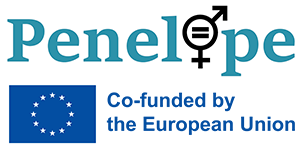

Could you please introduce yourself?
My name is Malgorzata Woch, and i am an EU Projects Manager at MEDEF AURA (Mouvement des Entreprises de France Auvergne-Rhône-Alpes, France).
I have been working in international cooperation and programs for the past 10 years, previously in HEI sector, today in private business.
I am graduated from Jagiellonial University in Cracow, Poland with a MA in International Relations.
Could you describe your organization and your industry/business ecosystem in a few words?
An NGO working to support the development of regional companies.
Could you give some facts, figures or a description of the status-quo related to the situation of gender equality in your sector? What are the challenges encountered?
France has made significant strides towards achieving gender equality in the business sector. In 2011, the French parliament passed a law requiring all companies with more than 50 employees to negotiate an agreement with their employees to promote gender equality in the workplace. This law has been effective in raising awareness about the issue and encouraging companies to take concrete steps to address gender disparities.
In 2019, the French government introduced new legislation aimed at closing the gender pay gap. This law requires companies with more than 250 employees to publish their gender pay gap data annually and to take steps to address any disparities. Companies that fail to comply with these requirements face fines of up to 1% of their total payroll.
In addition, France has introduced quotas for women on boards of directors. Since 2017, companies with more than 500 employees and a board of directors must have at least 40% of their members be women. This has led to an increase in the number of women in leadership positions in French companies.
Despite these efforts, gender inequality still exists in the French business sector. Women are underrepresented in top management positions and are more likely to be in low-paying jobs. The gender pay gap also persists, although it has been narrowing in recent years.
Overall, while there is still work to be done, France has made significant progress towards achieving gender equality in the business sector.
What mechanisms do you think would be useful to address these challenges or improve the situation you have just described?
Training, upskilling, and mentoring, empowering coaching activities, sensibilization campaigns to the top management that has a capacity to change the current situation.
Do SMEs in your sector have difficulties in recruiting?
Yes, especially in sectors where manual workers are required.
Would you say that gender equality offers a solution to overcome these difficulties?
Yes, some sectors missing important number of workforces shall focus on diversifying their workforce and attract more and more women to respond to market needs, including n managerial positions.
Do you think SMEs in your sector are aware of gender equality regulations?
I believe they are aware, but not all will be voluntarily making the effort to be aligned.
If so, do you know how to comply with these standards?
Via all our actions we try to underline and sensibilize the SMEs on gender related standards.
What initiatives do you think could be useful to help SMEs in this process (training, webinars, reference person in the company, etc.)?
Sensibilization campaigns and training to HR staff and managers, coaching to concerned women, refence persons on company level, involvement of public bodies and administration.
Would you say that working on gender mainstreaming can bring solutions to other challenges you observe (retaining female HR in organizations by addressing issues such as equal pay, work-life balance, combating sexist acts…; populating rural areas, etc.)?
Yes, described actions aim at mindset change which is a base and conditions for further changes.
What would be your main message on advancing gender equality approaches in SMEs?
Advancing gender equality in small and medium-sized enterprises (SMEs) is crucial for creating a more inclusive and equitable workplace. SMEs shall foster a culture of inclusion and respect, provide training and development opportunities, or review and revise hiring practices.
Could you describe why gender equality is important to you personally and to your organization?
Gender equality is a fundamental human right that ensures all individuals, regardless of their gender, have equal access to opportunities, resources, and benefits in all aspects of life. Gender equality promotes social, economic, and political fairness, allowing individuals to reach their full potential and contribute fully to society.
For organizations like ours, promoting gender equality is essential for creating a diverse and inclusive workplace. A diverse and inclusive workplace benefits everyone by promoting innovation, creativity, and better decision-making. It also helps attract and retain top talent, which can lead to increased productivity and profitability.
In summary, gender equality is important because it promotes fairness, inclusivity, and diversity, leading to better outcomes for individuals and organizations alike.
What are the experiences and/or projects that you are proud of that are related to gender equality or gender mainstreaming?
There are several ongoing projects in France related to gender equality and gender mainstreaming. Here are a few examples:
- The Gender Equality Grand Plan: Launched in 2018, this initiative aims to promote gender equality in all areas of French society, from education to the workplace. It includes measures to increase women’s representation in politics, reduce the gender pay gap, and combat gender-based violence.
- The 2019 Gender Equality Index: This index measures progress toward gender equality in the workplace, taking into account factors such as pay, leadership positions, and work-life balance. It is designed to help companies identify areas where they need to improve their policies and practices.
- The #NousToutes Movement: This grassroots movement, launched in 2018, aims to combat sexual harassment and assault in France. It has organized several large-scale protests and campaigns calling for systemic change to address the issue.
- The Gender Equality Certification: This certification program, launched in 2019, allows companies and organizations to demonstrate their commitment to gender equality by meeting specific criteria related to policies and practices. It is designed to encourage companies to take concrete steps to promote gender equality in the workplace.
- The Ministry of Gender Equality: Established in 2012, this government ministry is responsible for coordinating policies related to gender equality and promoting women’s rights in France. It works closely with other government agencies and civil society organizations to advance gender equality in all areas of French society.
How would you describe the added value of being a woman in a position of responsibility?
- Diversity of perspective: Women can bring a unique perspective to leadership roles due to their diverse experiences and perspectives. This can lead to more creative and innovative solutions, as well as a greater ability to understand and meet the needs of a diverse range of stakeholders.
- Empathy and emotional intelligence: Women are often seen as more empathetic and emotionally intelligent than men, which can be valuable in leadership roles. This can help leaders to better understand the needs and motivations of their team members, and to create a more supportive and collaborative work environment.
- Role modeling: Women in leadership roles can serve as role models for other women and girls, inspiring them to pursue leadership positions and helping to break down gender barriers in the workplace.
- Improved team dynamics: Research has shown that teams with a diverse range of perspectives and experiences tend to be more effective and innovative. Having women in leadership positions can help to create a more diverse team, which can lead to better outcomes.
Overall, having women in positions of responsibility can bring a range of benefits to organizations and society as a whole. However, it’s important to recognize that women should be valued and promoted based on their skills and qualifications, rather than just their gender.
What are your challenges and opportunities being a woman in a position of responsibility?
Challenges:
- Unequal pay – present salary differences between women and man.
- Work-Life/Family Balance – challenging when holding a position of responsibility (can lead to stress, burnout, and difficulty in managing double responsibilities).
Opportunities:
- Mentor/role models in the closest environment (professional and private one). Women in positions of responsibility can serve as role models for other women, inspiring them to pursue leadership roles and break through the glass ceiling.
- Breaking Stereotypes: Women in positions of responsibility can help break gender stereotypes by proving that women can be successful leaders.
- Male managers supervising women with an appropriate supportive and open attitude – Empowering and encouraging women to further career growth (an easy solution that we forget to take into account, very very efficient).
What would be your main message on advancing gender equality approaches in SMEs?
Advancing gender equality in small and medium-sized enterprises (SMEs) is crucial for creating a more inclusive and equitable workplace. SMEs shall foster a culture of inclusion and respect, provide training and development opportunities, or review and revise hiring practices.


